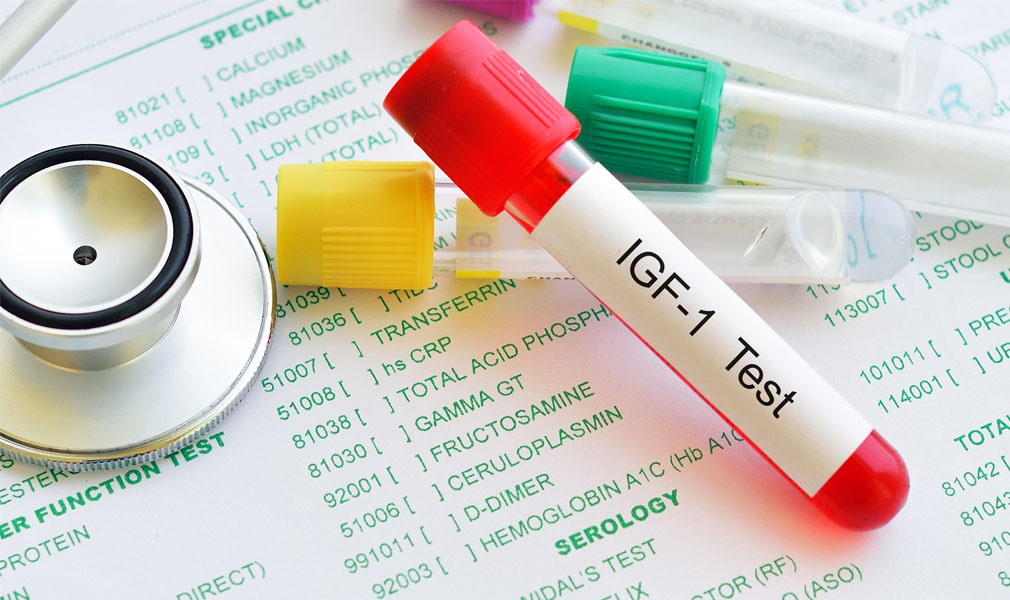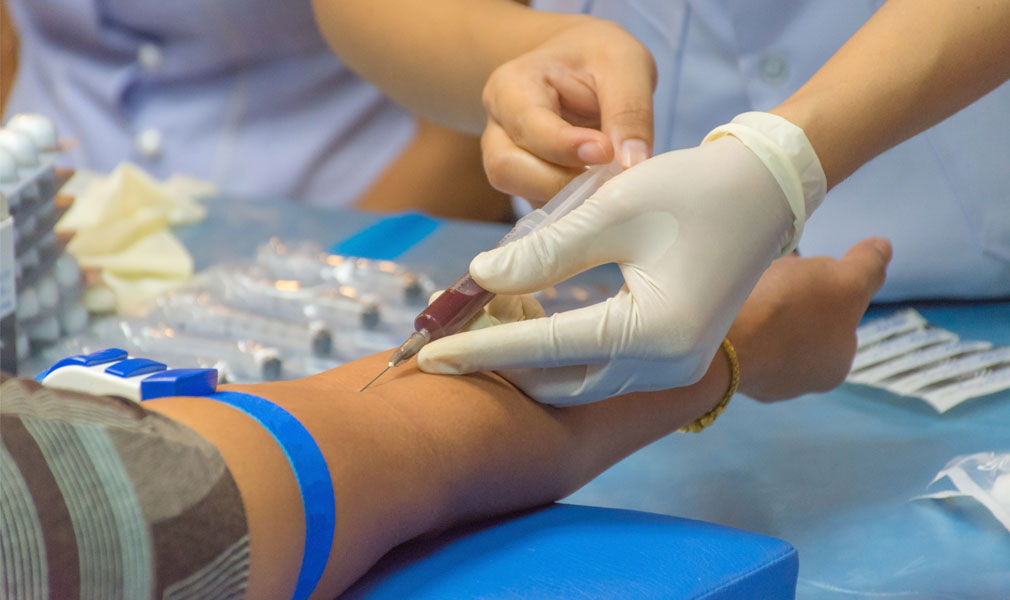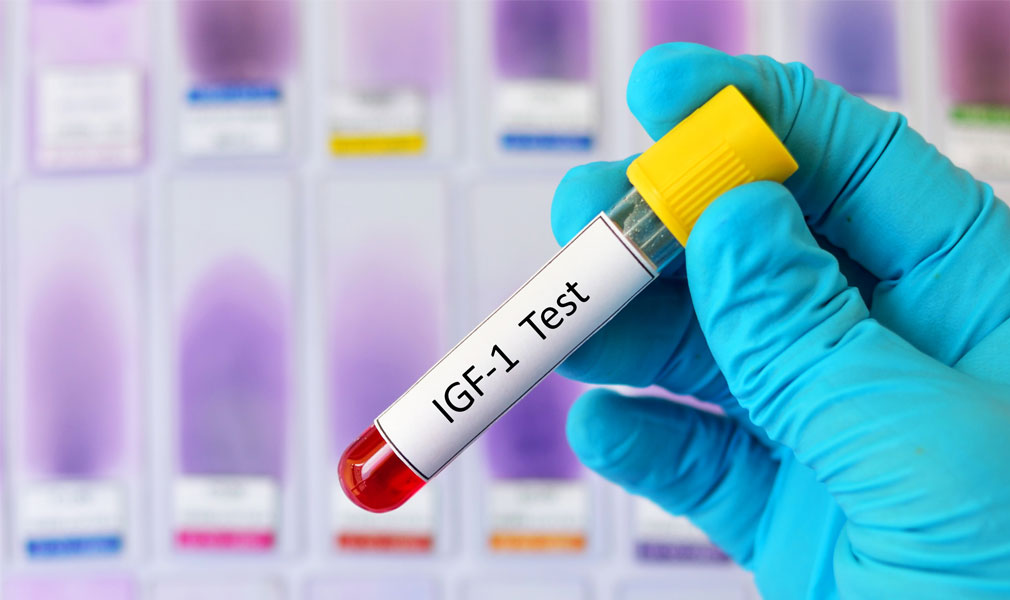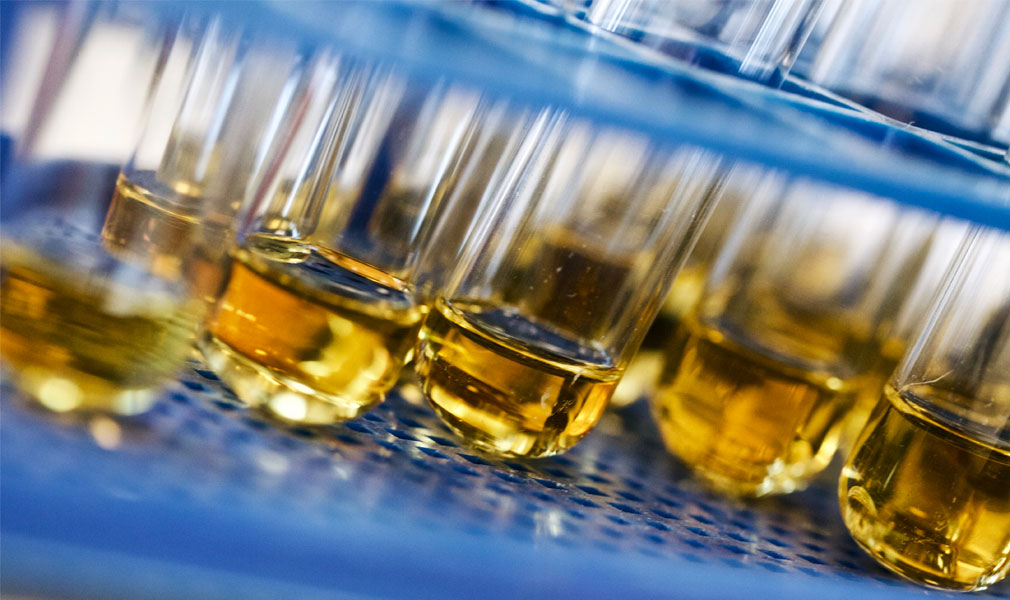Testing Your Blood For IGF-1 Levels
Before you can start any kind of growth hormone therapy you must have your growth hormone levels tested. Unlike most other hormones, human growth hormone (HGH) levels fluctuate throughout the day. It is very difficult to get an accurate assessment of your HGH level by testing your blood for the presence of growth hormone.
Insulin growth factor 1 or, IGF-1, on the other hand is much more stable than HGH. HGH and IGF-1 are intimately related, as one influences the production of the other. But since your level of IGF-1 does not vary throughout the day, as does HGH, the way doctors determine if you have a growth hormone deficiency, or GHD, is to first test for your IGF-1 level. If it is low, or high, it is safe to assume that the same will be true of you HGH level.

What Is IGF-1 and Why Is it Important?
IGF-1 or Insulin growth factor 1 is a hormone that gets its name because it is molecularly similar in chemical structure to Insulin. IGF is produced in the liver where it renders a wide range of effects on the body. It plays and important role in:
- Metabolism
- Protein synthesis
- Cellular growth
- Muscular development
- Tissue repair
However, it’s most important role in the body, is that IGF-1 facilitates many of the critical effects of growth hormone. Growth hormone stimulates the production of IGF-1 by the liver, and in turn, IGF helps to enhance the effects of HGH, particularly those involved with muscle growth, protein synthesis, and fat metabolism.
This is why if you are exhibiting symptoms of low growth hormone, after a careful evaluation of your symptoms, and a complete medical exam, you doctor may order an IGF-1 test.
How Are IGF-1 Levels Tested?
The so-called IGF-1 test, is not really given to determine the level of IGF-1 in your blood, but rather the relationship between IGF-1 and human growth hormone, or HGH. According to the University of Rochester Medical Encyclopedia, “because IGF-1 measurements relate to GH measurements, this test is used to diagnose many problems linked to too much or too little HGH.”
The IGF-1 test is simple. A vial of your blood is drawn as in any other blood test, and the sample is sent to the lab for testing. There is no special preparation needed to take the test, however, since it is usually given at the same time as other blood tests, you may be asked to fast for 12 hours before your blood is drawn.

What Is the Relationship Between IGF-1 and Growth Hormone?
In many ways, growth hormone could not work without IGF-1 and vice versa. The two hormones have what is known as a synergistic relationship. HGH triggers the production and release of IGF-1. While HGH can impact tissue growth directly, many of its most important functions are actually accomplished by IGF-1. There are only certain tissues throughout the body that have direct receptors for HGH. Most tissue growth such as the skin, bones, and muscles, is accomplished through the indirect action of IGF-1.
The synergistic action between IGF-1 and HGH was explored in a 2001 study published in the Journal of Clinical Pathology, which concluded, “IGF-1 is an important growth hormone, mediating the protein anabolic and linear growth promoting effect of pituitary HGH. It has a HGH independent growth stimulating effect, which with respect to [cellular growth] is possibly optimized by the synergistic action with HGH.”

However, without an adequate supply of HGH, there is also less IGF-1. IGF-1 stimulates growth in almost every cell of the body. This means that a reduction in either IGF-1 or growth hormone, will result in the complications of GHD.
GHD in children can result in:
- Slowed growth rate
- Delayed onset of puberty
- Delayed bone development
In adults, a deficiency in IGF-1 or growth hormone can cause:
- Fatigue
- Reduced muscle mass
- Increased fat due to slowed metabolism
- Decrease bone density
What If my IGF-1 Levels Are Low?
If your IGF-1 blood tests have revealed that your IGF-1 level is lower than it should be, it is reasonable to assume that you have a growth hormone deficiency. If your IGF-1 tests indicate that you are not producing adequate amounts of HGH, you may be given a prescription for growth hormone replacement therapy.

Treatments for Low IGF-1
Since the level of IGF-1 in your body is directly related to your level of HGH, the treatment for low IGF-1, is growth hormone replacement therapy.
For men and women whose IGF-1 blood tests have revealed low IGF-1, and therefore, GHD, growth hormone injections have been found to:
- Increase fat metabolism, resulting in weight loss
- Increase lean muscle mass and improved body definition
- Increase stamina
- Improve sleep
- Boost memory and improve other cognitive functions
- Increase libido and improve sexual performance
- Strengthen bones, and fight osteoporosis
In addition, HGH injections have also been found to have a positive effect in lowering “bad” cholesterol. That, combined with HGH’s ability to improve lipid metabolism, can decrease the risk of cardiovascular disease.




















